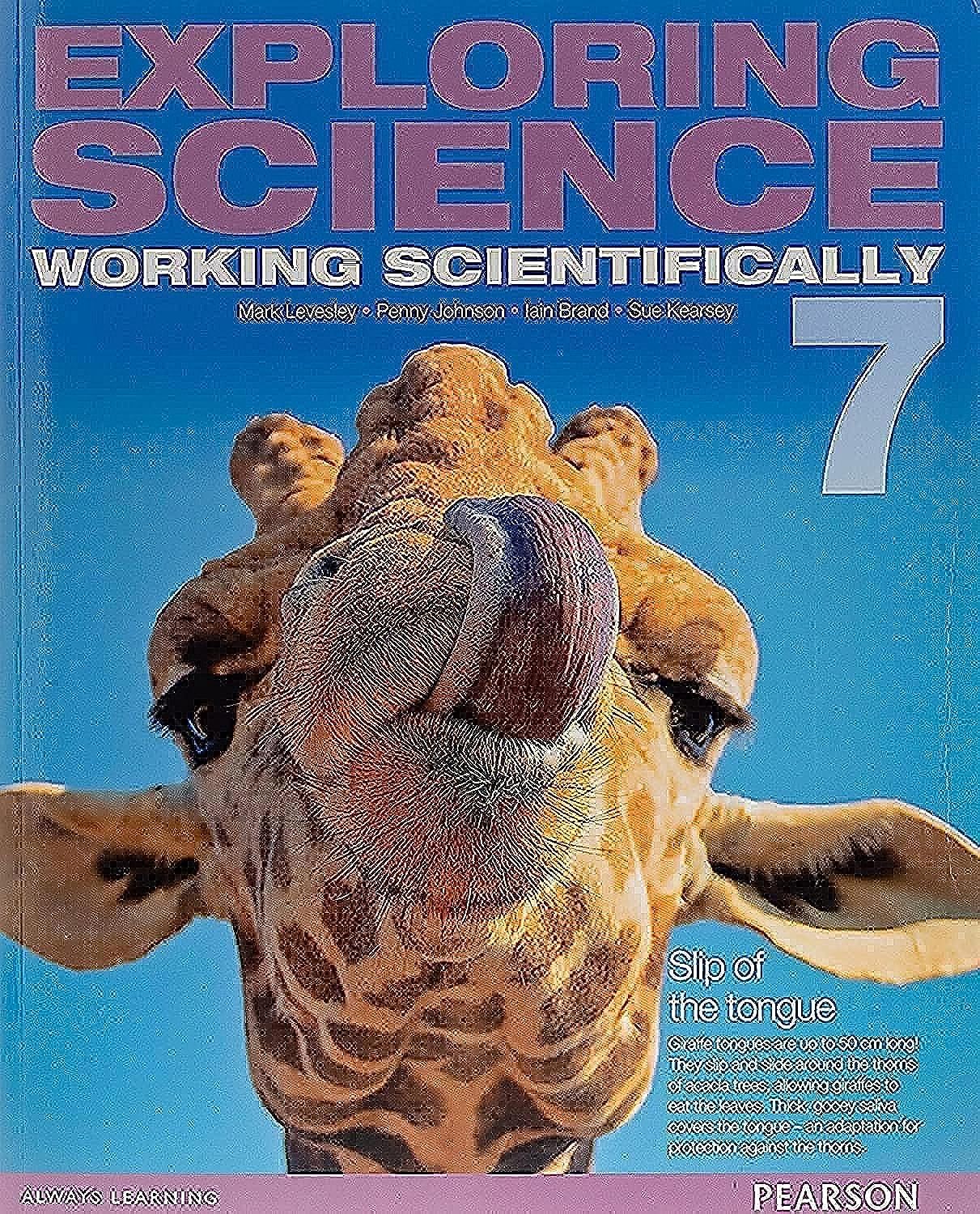
Exploring Science: Working Scientifically Student Book Year 7 (Exploring Science 4)
FREE Shipping
Exploring Science: Working Scientifically Student Book Year 7 (Exploring Science 4)
- Brand: Unbranded

Description
Most purchases from business sellers are protected by the Consumer Contract Regulations 2013 which give you the right to cancel the purchase within 14 days after the day you receive the item. Each page of the ActiveBook is linked to a host of engaging interactive resources that enhance teaching and learning, including a bank of clips from popular BBC science programmes! It is not included in promotions available to our main range products, as stated in our terms of service.
Student Books arranged by subject (Biology, Chemistry, Physics) or by Year group (7, 8, 9), a colourful workbook for each year, plus online digital resources, give you the fullest support for planning, teaching, progress tracking and assessing students’ progress from 11–14 and on to International GCSE (9–1). Provides content for a broad and balanced science curriculum, while building the skills needed for International GCSE sciences and the 13+ Common Entrance Exam.Pearson's popular 11-14 Exploring Science course - loved by teachers for its exciting, real-world science - inspires the next generation of scientists. The Exploring Science International Year 7 Student Book is absolutely perfect for children in Year 7 studying the national curriculum in England.
Pearson’s popular 11-14 Exploring Science course – loved by teachers for its exciting, real-world science – inspires the next generation of scientists.
For our global deliveries, we only use the fully tracked couriers DPD, FedEx, TNT, ParcelForce and UPS. Unlock your child's potential and set them up for a bright future with the Exploring Science: How Science Works Year 7 Student Book with ActiveBook with CDROM. Desire: With full answers included, your child can independently study and check their understanding.
Will use other resources alongside, but really thIs book covers most things you need for year 7 curriculum. Important: Your credit card will NOT be charged when you start your free trial or if you cancel during the trial period. With brand-new content, this 2019 International edition builds a base for progression to International GCSE Sciences and fully covers the content of the 13+ Common Entrance Exam.Filled with exciting, real-world science, this book will ignite their passion for learning and help them excel in their studies.
Session one will focus on familiarization with the resource, its functionality and strategies to use it to teach the subject in question in the classroom. I bought this for my daughter even though we had had to purchase the online version through school (which we couldn't access via the iPad). A colourful workbook for each year group student book containing space to answer questions from the Student Books along with additional questionsto consolidate and deepen learning both in class and at home. STEM sections allow your budding scientists to explore STEM-related concepts, skills and jobs, from the very start of their Secondary science journey.Awareness: This book is the perfect resource for parents who are committed to enhancing their children's education and fostering academic achievement. It provides the specific skills needed to progress to International GCSE, along with complete coverage of the Edexcel iLowerSecondary Award and the UK Curriculum objectives. We take pride in offering a wide selection of used books, from classics to hidden gems, ensuring there’s something for every literary palate. Subject: science; biology, chemistry, and physics Level: Key Stage 3 (age 11-14) Exciting, real-world 11-14 science that builds a base for International GCSEs. Introducing the Exploring Science: How Science Works Year 7 Student Book with ActiveBook with CDROM by Pearson Education Limited.
- Fruugo ID: 258392218-563234582
- EAN: 764486781913
-
Sold by: Fruugo
